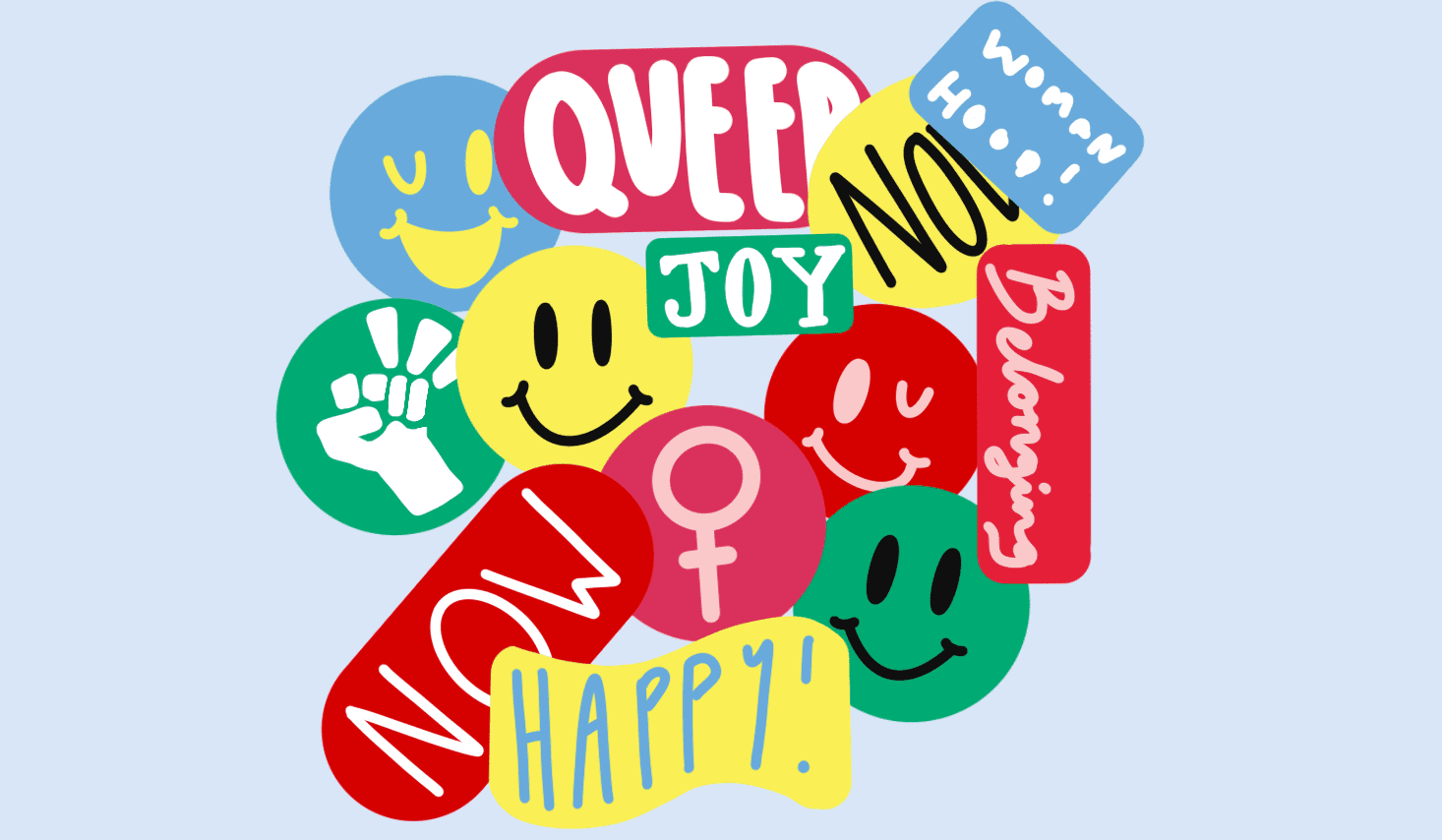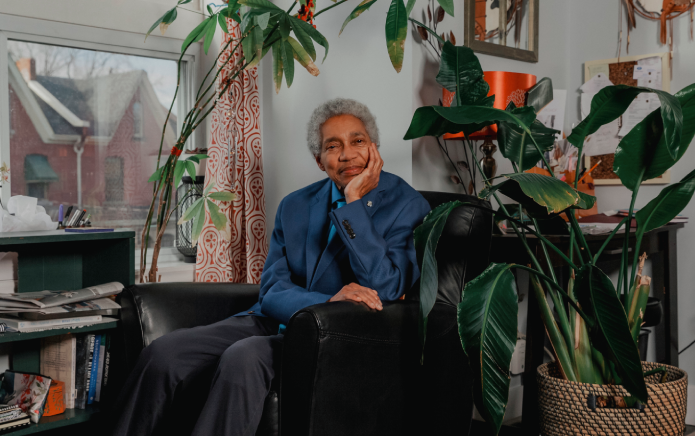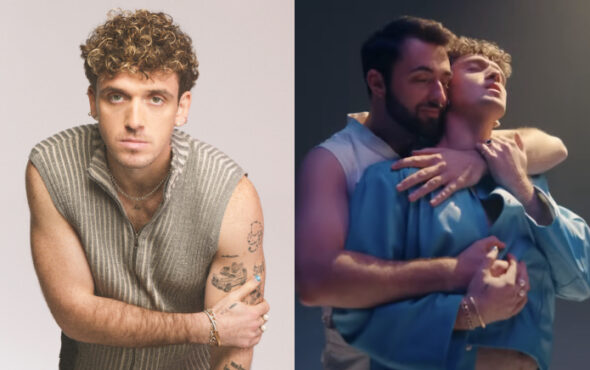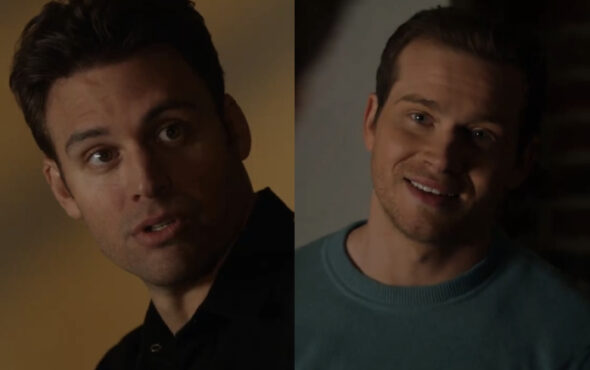
Growing up, I had no idea bisexuality existed. I realised I was attracted to women at a young age, but I was also attracted to men, and I wrongly believed that I had to choose between the two. As such, I chose what I knew would be ‘amenable’ and easiest for my family, who were unashamed in their views that being LGBTQ+ was not acceptable. I didn’t know that you could like both or other genders, I thought that there was only ‘straight’ or ‘gay’ and nothing else. As a result, I suppressed the side of myself that liked women and though I was vocal about my support for the LGBTQ+ community with my family and friends. I always maintained that I was a straight ally rather than someone who was directly affected by homophobia.
It wasn’t until I moved to the UK, at the age of 16, that I found out bisexuality existed. My best friend, who at the time identified as bisexual, exposed me to the nuances of sexuality and it was eye-opening for me. Her own experiences, as well as her general knowledge of the LGBTQ+ community, was something that I didn’t have because of the homophobic environment I grew up in. I asked her thousands of questions and read as many articles I could find until I felt that bisexual was the best label I could attribute to myself. I credit her for helping me with this and fostering my curiosity about my identity.
While I may have found my way to bisexuality myself, there is no guarantee when or whether I would have had the welcoming and positive reception I had with her and other friends from school. I was excited and relieved to have found a way to describe myself that felt right, to find a word that I had never conceived of before. It felt like that last puzzle piece of who I was was slotting into place – even though at that age, I wasn’t exactly comfortable with any of my identities, this moment was definitely the starting point of my journey towards the acceptance I have now.
I asked her thousands of questions and read as many articles I could find until I felt that bisexual was the best label I could attribute to myself
That acceptance wasn’t easy to come by, which is why I’m all the more grateful for what I’ve overcome and the empowerment I now feel as a queer woman of colour. My school wasn’t the most welcoming environment for anyone from a marginalised background.
As an LGBTQ+ person, you had to subject yourself to homophobic comments under the guide of ‘lads banter’. Couple that with being a woman of colour, and you are forced to hear homophobic comments that are tinged with racism and sexism too. It made me feel degraded and dampened the newfound happiness and confidence I had started to find. This experience had an impact on how I felt about my identity, and made me feel like I didn’t belong – similar to how I’d felt as the only mixed-race person in my family, made more complicated by the fact I had discovered I was bisexual and wouldn’t be accepted.
I began to question whether I really was bisexual and even hoped I was wrong about my same-sex attraction both for fear of not fitting into this overwhelmingly straight, cisgender, white school I was a part of (and the society they represented) and for fear of bringing shame onto my family and culture. As a mixed-race woman, I often felt suspended between two very distinct and disparate cultures. At times I was too white for the Chinese side of my family and too brown for the Danish side of my family. I was stuck, and neither side fully accepted me. There was one thing they agreed on though: being queer was wrong. I could only find acceptance here in the UK with my friends, my chosen family, because I didn’t think they would ever change their ways.
At times I was too white for the Chinese side of my family and too brown for the Danish side of my family. I was stuck, and neither side fully accepted me
Luckily, towards the end of my dad’s life, I accidentally came out to him over the phone one day and while we never really discussed it, he made it known to me that he didn’t care about my sexuality, just that I was happy. This was mirrored by other decisions in my life, such as to become a journalist, that was also frowned upon by my mother and her side of the family – my dad always advocated for me, and he did so even when he found out I was bisexual, despite his homophobic upbringing. I remember once that we were sitting in Fortnum and Masons near Piccadilly Circus in London, and I was looking over his shoulder at an attractive man. My dad could tell I wasn’t paying attention to him and asked me whether I was distracted by a cute guy or a cute girl. We laughed, I told him it was a guy, and that was that. But, it is a fond memory for me because it was one of the last times we saw each other before his death, and it felt to me that it was his small way of saying that he accepted who I was. It is something I will never forget, and it is one of the memories that fosters queer joy for me to this day.
Being biracial, I experience discrimination from both cultural backgrounds and being bisexual, I often experience biphobia from both straight and gay people. I couldn’t pick a side when it came to my race because I was born this way without any choice in the matter, and similarly, I cannot ‘pick a side’ when it comes to my sexuality either. This is a common trope applied to bisexual people and reinforced within popular culture. In Sex and the City, when Carrie dates a bisexual guy, she tells her friends that she feels like bisexuality is simply a “layover on the way to Gaytown,” while even the largely progressive show Glee aired a scene with Kurt saying that “bisexual’s a term that gay guys in high school use when they wanna hold hands with girls and feel like a normal person for a change.” Thankfully, bisexual representation has improved now, as have general attitudes towards bisexuality. This doesn’t mean life for bisexuals is perfect, nor does it mean that we don’t have to deal with stupid and shitty comments from people of all races, genders, or sexualities, but it does mean that an increasing normalisation of it has made it easier for us to exist just as we are.
Thankfully, bisexual representation has improved now, as have general attitudes towards bisexuality.
Bisexual women often have to deal with hyper-sexualisation and requests for threesomes from men as well as dealing with disgust and disbelief from others in the LGBTQ+ community. Though the ‘B’ is clearly part of the acronym, many lesbian and gay people are not as accepting as they should be. Some lesbians even identity as ‘gold-star lesbians’, meaning they have never kissed or dated a man, and will not want to date a woman who does not have similar credentials. All of this promotes biphobia and increasingly ostracises bisexual people from everyone, erasing their identity and hurting their self-esteem.
I had a lot of internalised biphobia when I came out, as I have dated more men than women. I have had intrusive thoughts about whether I really was doing it for attention or to be quirky, like so many suggest, or whether my interest in women is simply a way to be more attractive to men and to facilitate their sexual fantasies of two women ‘getting it on’. I still face biphobia and struggle with my identity, especially as I am in a heterosexual relationship. Though my partner uses he/they pronouns, we do appear to be very conventional from the outset. As a woman in a long-term relationship, I have often questioned my identity – am I any less bisexual because of my relationship? Will people not believe me when I say I am bisexual? How do I deal with the inherent gender imbalance that exists in our relationship because of how we were brought up?
Despite these very big questions that often don’t have concrete answers, I feel happy and powerful as a queer woman. I am comfortable and confident in my identity, and I no longer feel the need to separate those terms out. I identify as a queer woman of colour, and I will always be one no matter what kind of relationship I am or whatever derogatory comment I am faced with.
The joy I felt when I discovered I was bisexual has made a comeback, especially during the pandemic, when I was able to connect with many other queer people of colour online. Additionally, I have been able to have more open conversations with my close friends about these feelings, and we can find strength in sharing them with each other. They are my chosen family, and I find joy in being around them and knowing that they will love and accept me no matter what – in a way that my classmates at school, my family, and a carousel of strangers I’ve met through the years will never be able to do. But, it doesn’t matter that they can’t or won’t provide that acceptance, as long as I accept myself. I am proud to be a queer woman of colour, I am stronger because of my varied experiences and am able to empathise with the differing understandings of bisexuality because of my past.
The joy I felt when I discovered I was bisexual has made a comeback, especially during the pandemic, when I was able to connect with many other queer people of colour online.
Constantly straddling two worlds, and rarely finding support or love from either side, has been hard, but I realised that I do not have to hide half of myself to appease someone else. I proudly proclaim that I am a queer woman of colour in my social media profiles and I am happy with that identity. As a queer woman in a heterosexual relationship, I am open about my feelings and past experiences with women and am lucky that my partner is understanding and does not buy into biphobic tropes.
For many years, LGBTQ+ people have fought for their rights by telling stories of their oppression and, similarly, people of colour are often forced to tell harrowing tales of racism to elicit sympathy. But, while those stories are sometimes powerful and useful, there is just as much, if not more, power in platforming and discussing moments of joy. Joy for people of colour, queer joy, and joy as a woman – they are all an act of protection against a society that has for years exhibited homophobia, biphobia, sexism, racism, and occasionally all of them wrapped into one. I want to be happy, and I will not be defined by my oppression. They can never take away who I am, and I am unapologetic for the person I choose to be.



